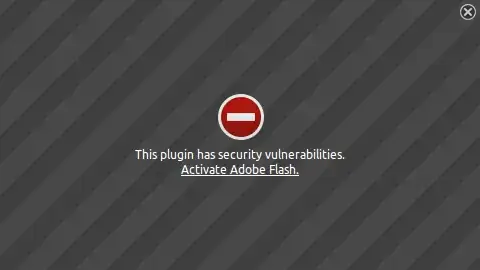The accepted way to get Flash in Ubuntu and Linux, and a recent version, is with Google Chrome, as it's the only browser shipping a Flash version.
Adobe stopped supporting Flash for Linux (even in Firefox) around version 11. They no longer produce any 'new' Flash releases for Linux and the way Firefox handles plugins. Due to the really really old version number (18 is the latest Flash overall, and 11 is the last supported Firefox plugin version available for Linux), and other security concerns, Firefox automatically disables these 'old' versions. This applies to all Operating Systems, not just Ubuntu and *nix. (While @ParanoidPanda is correct they now enforce that for a few extra versions across all platforms, this isn't the primary reason for this warning in Ubuntu/Firefox).
However, even though Adobe pulled native support for Firefox's plugin API formats for Linux and such, Adobe and Google have an agreement. This agreement lets Google ship updated Flash that uses the Pepper API framework, and it is included in Google.
There are wrapper programs that can be installed into Firefox that leverage the use of the Pepper Flash in Chrome, provided you install Chrome. However, most users just switch to Chrome when this is the case.
I would suggest that you install Chrome and use that for browsing and using Flash sites (provided you keep it up to date).
Note however that there is no way to bypass this change in Firefox's policy. There is a page in the Security Team's knowledge base that details this issue a little more, or at least, provides a timeline for all the events related to this.

